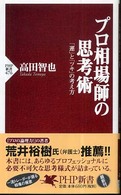Full Description
This multi-authored volume draws on the collective experiences of a team of researcher-practitioners, from three Oceanic universities, in an aid-funded intervention program for enhancing literacy learning in Pacific Islands primary education schools. The interventions explored here—in Solomon Islands and Tonga—were implemented via a four-year collaboration which adopted a design-based research approach to bringing about sustainable improvements in teacher and student learning, and in the delivery and evaluation of educational aid. This approach demanded that learning from the context of practice should be determining of both content and process; that all involved in the interventions should see themselves as learners. Essential to the trusting and respectful relationships required for this approach was the program's acknowledgement of relationality as central to indigenous Oceanic societies, and of education as a relational activity.
Relationality and Learning in Oceania: Contextualizing Education for Development addresses debates current in both comparative education and international aid. Argued strongly is that relational research-practice approaches (south-south, south-north) which center the importance of context and culture, and the significance of indigenous epistemologies, are required to strengthen education within the post-colonial relational space of Oceania, and to inform the various agencies and actors involved in 'education for development' in Oceania and globally. Maintained is that the development of education structures and processes within the contexts explored through the chapters comprising this volume, continues to be a negotiation between the complexity of historically developed local 'traditions' and understandings and the 'global' imperatives shaped by dominant development discourses.
Contents
Foreword
Kabini Sanga
Acknowledgements
Abbreviations
Notes on Contributors
1 Introduction: Education for 'Development' in Oceania
Eve CoxonSugawara
PART 1: Contextual and Methodological Framings
2 Education for Development in Context: Solomon Islands and Tonga
Eve Coxon, Jack Maebuta and Seu'ula Johansson-Fua
3 Motutapu: A Relational Space for Collaborative Research-Practice in Oceanic Education
Seu'ula Johansson-Fua
4 Design-Based Research as Intervention Methodology
Rebecca Jesson and Stuart McNaughton
PART 2: Learning for Human Development
5 Literacy Learning
Rebecca Jesson
6 Adjusting Language-in-Education Practices in Multilingual Societies: A Solomon Islands Case Study
Robert Early
7 Pedagogy and Relationality: Weaving the Approaches
Ana Heti Veikune, Jacinta Oldehaver, Seu'ula Johansson-Fua and Rebecca Jesson
8 The Tail Wagging the Dog or Assessment for Learning?
Rebecca Spratt and Ritesh Shah
PART 3: Learning for International Development
9 When Evaluation and Learning Are the Intervention
Irene Paulsen and Rebecca Spratt
10 What Does Relationality Mean for Effective Aid?
Rebecca Spratt
Afterword
Konai Helu Thaman
Glossary
Index








